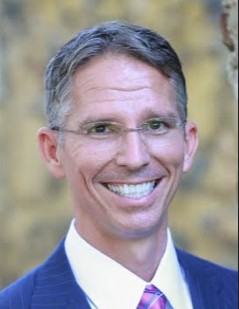Investing In Startups: Kenton Crabb’s Tips

Kenton Crabb On The Importance Of Emergency Funds
When unexpected financial challenges arise, having an emergency fund can make all the difference. According to financial advisor Kenton Crabb, this reserve of savings serves as a crucial safety net for individuals and families alike. An emergency fund is designed to cover unforeseen expenses such as medical bills, car repairs, or even job loss. By setting aside money specifically for emergencies, individuals can avoid going into debt or having to liquidate investments at unfavorable times.
Building Your Emergency Fund
Building an emergency fund starts with setting a realistic savings goal. Financial experts like Kenton Crabb recommend aiming for at least three to six months’ worth of living expenses. This amount provides a buffer against temporary financial setbacks and ensures peace of mind during uncertain times. To begin, assess your monthly expenses and determine how much you can comfortably save each month. Consider automating transfers to your emergency fund to ensure consistency.
Maintaining Financial Resilience
Once established, maintaining your emergency fund requires discipline and periodic review. Life circumstances can change, so it’s important to reassess your fund’s adequacy as your financial situation evolves. For instance, a major life event such as starting a family or buying a home may warrant increasing your emergency fund to account for higher expenses or potential income fluctuations.
Financial advisors such as Crabb emphasize that an emergency fund should be easily accessible in times of need. Therefore, consider keeping your savings in a separate account that is liquid and not subject to market volatility. While the exact amount needed may vary based on individual circumstances, the peace of mind that comes from knowing you’re financially prepared for unexpected expenses is invaluable.
In conclusion, the importance of maintaining an emergency fund cannot be overstated. As Kenton Crabb advises, this financial cushion serves as a cornerstone of financial planning, providing stability and security in the face of unforeseen circumstances. By prioritizing savings and regularly contributing to your emergency fund, you’re investing in your future financial well-being. Start building your emergency fund today, and you’ll be better equipped to weather whatever financial challenges may come your way.
Posted on June 24, 2024
Categories
Recent Blogs
- Why Choosing FUN88’s Direct Website Leads to Faster Load Times
- Best Live Casino Games for Real-Time Thrills
- Genie Casino: Magical Moments, Real Rewards
- Cut Costs, Not Quality: AquaTru Coupons You Can Trust
- Top Examples of Capital Expenses for Rental Properties
- Midland TX Electricians – Experts in Residential & Commercial Projects
- Navigate Online Deals with These Shopping Guides